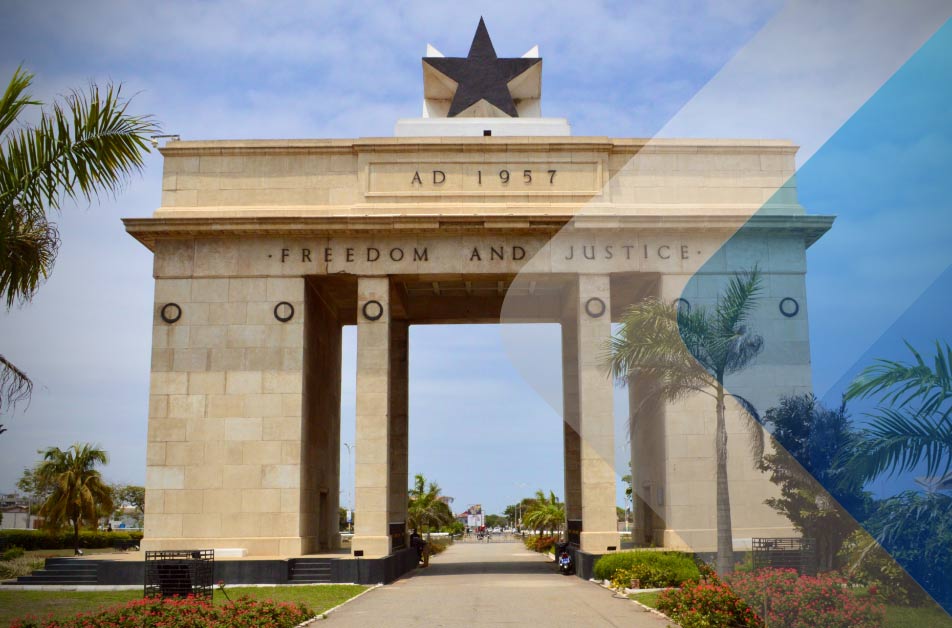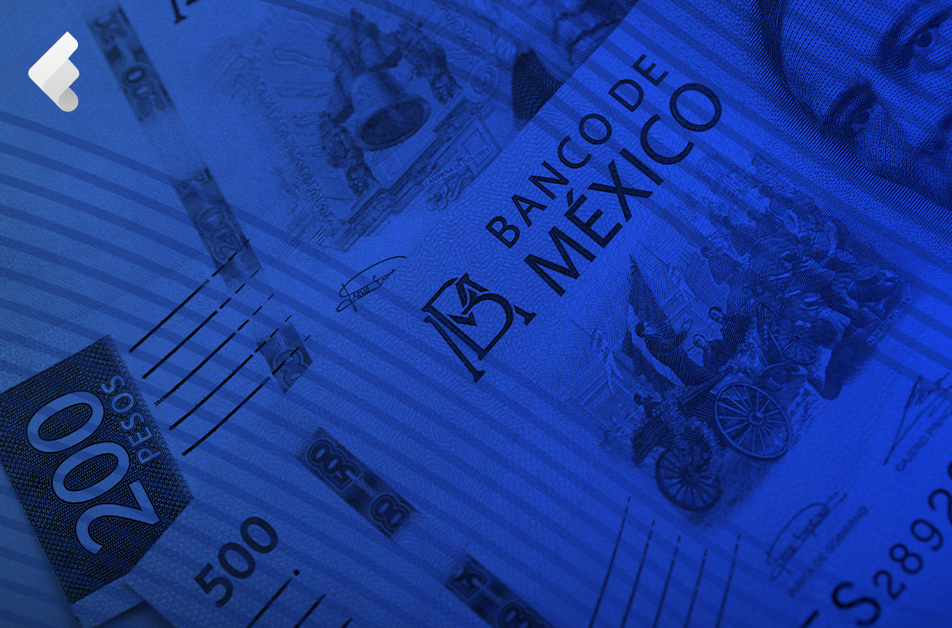Table of Contents
With a young population and a rapidly-developing economy, Ghana is one of the most attractive destinations in West Africa for investing and sourcing talent. If you are interested in expanding into this growing and vibrant nation, using the services of an EOR, or employer of record in Ghana can save you valuable time and money.
Using an EOR arrangement for hiring international employees means avoiding setting up a local entity, which allows you to focus more on growing core elements of the business. Additionally, an employer of record in Ghana will take care of administrative matters, such as onboarding, payroll, benefits, insurance, and the eventual offboarding of team members.
SEE ALSO: Call center outsourcing: 5 great destinations to consider
Thanks to having an established recruitment network and expert understanding the local labor market, an employer of record in Ghana will be able to find outstanding candidates fast, and it is possible to have people in place within weeks of signing a services agreement with your chosen provider.


The EOR will also assume much of the liability associated with being an employer, meaning you can be confident of being compliant with local laws, while being sheilded from potential legal complications or financial penalties associated with non-compliance.
It is worth noting that an employer of record in Ghana may also refer to themselves as an international professional employer organization (international PEO). However, while some providers do not distinguish between EOR and PEO, others draw a clear distinction.
If you are interested in quickly and compliantly hiring top professionals in Ghana, or elsewhere, contact us.
Ghana factfile
West Africa’s second most populous nation after Nigeria, Ghana is a diverse country with many different peoples represented in the country, although nearly half the country identifies as Akan. While Christianity – both Catholic and Protestant – dominates, there is a sizeable Islamic minority at around 20% of the population.
Like many of its neighbors, Ghana is a member of the West African Economic and Monetary Union (WAEMU), which makes it a key player in the region’s economic and financial strength through cooperation. The country was also a founding member of the African Union and is an extant member of the Commonwealth. Independence was won in 1960 and Kwame Nkrumah became the first president.
The capital is the bustling port of Accra in the south, with over five million inhabitants. Other key cities include Takoradi and Cape Coast on the coast. Inland, Kumasi is the second city and Tamale is the most important northern city.


English is the primary language of Ghana, with 11 indigenous languages and Ghanian sign language also legally recognised. French is also widely taught and spoken, as the country has borders with many Francophone countries.
In culture, Ghanian music is popular across the continent and into Europe as well, while Ghanian authors are at the forefront of new African fiction. Adinkra printing in clothing has a rich history and along with contemporary fashion designs is making waves outside the country. The national football team has four victories and the second best overall record in the Africa Cup of Nations.
Reasons to invest in Ghana
After a substantial rebasing of GDP data in 2010, Ghana has posted relatively impressive economic figures compared to its neighbours. GDP has risen continually for four decades to 68th in the world, although there remains room for improvement. Corruption perception is lower than many neighbouring countries and outperforms the GDP per capita ranking.
A particularly impressive sector of the economy is heavy industry, with automobile production well established. Electric vehicle production was established a decade ago, giving Ghana a headstart in this growing area. The country also boasts Africa’s first locally produced and owned computer and telecommunications company, Rlg Communications.


Ghana has a population of just over 30 million, of which 30% are under 15 years old, giving it a dynamic demographic profile with plenty of room for development. Education is valued, with about 85% of children enrolled in school, making Ghana a leader in the region.
At a governmental level, Ghana is forward facing and generally stable. Unlike some regional actors, the country has stayed largely conflict-free since independence was won in 1960. The Ghana: Vision 2020 plan appears to be largely on track and aims to achieve highly developed country status within the next two decades.
Oil is the most important source of external income for the country, which is mainly exported to China and South Africa. Ghana also has significant deposits of gold, which comes second on the export list. Cocoa products make up the rest of the top five. In terms of imports, Ivory Coast depends on China, the Netherlands, and Nigeria.
Employer of record in Ghana: acquire the best talent
Finding, hiring, and managing professionals is easier and faster through a legal employer, such as an employer of record in Ghana. The new international team members will report to the organization-client as if they were hired directly.
An employer of record in Ghana will also take care of human resources issues, such as managing the workforce’s payroll and handling benefits, leave, health insurance, the eventual departure of employees, and any legal labor issues.
As an international EOR service provider, an employer of record in Ghana will charge a fee, which is usually monthly and for each employee hired. This investment is often much less in terms of money, time and stress than the costs of establishing and managing an entity in a new territory.
When hiring local professionals through an employer of record in Ghana, organizations do not have to worry about compliance with unfamiliar regulations, as these third parties are experts in the field. They thus avoid falling into misunderstandings of the law and possible fines.
In addition, all headhunters in Africa have an established network of professionals, so searching for, identifying, and hiring the most suitable candidates to fill specific vacancies is a relatively simple process, depending on the position needed in the company. An employer of record in Ghana is also likely to understand cultural practices and speak relevant local languages.
In case an organization plans to take its business to other markets in West Africa such as looking for an employer of record in the Ivory Coast, working with an employer of record in Ghana is of great help, as these companies will be able to assist in its further expansion, as they usually have entities in the region.
Regulations that an employer of record in Ghana will handle
An employer of record in Ghana will take care of the following regulation when hiring professionals on your behalf:
Employment contracts. In Ghana, contracts are concluded for a fixed or indefinite period. In addition, they may include a probationary period, which must be established in writing and ranges from eight days to three months. Oral contracts are acceptable up to six months of work, but longer periods must be confirmed in writing.
Working hours. The work week is from Monday to Friday, and the hours worked per week are 40, in eight-hour days. Night shifts usually start at 9:00 p.m. and end at 5:00 a.m. If it is necessary to work overtime or on holidays, the maximum number of hours allowed per week is 15. Overtime pay is also established in the contract and is paid at a minimum of time-and-quarter.
Salary. In this African territory, the minimum wage is 14.88 Cedi hourly, about US$1.3. Payroll is usually weekly or monthly, and can be handled by an employer of record in Ghana.
Vacations and national holidays. According to Ghanian law, if you have been with a company for one year, you are entitled to 15 working days of vacation. Note that there are also 15 public holidays during the year.
Sick leave. By law, employers must grant days off to their employees based on a medical certificate. Generally, sick leave is five paid days.
Maternity and paternity leave. Women are entitled to a minimum of 12 weeks of maternity leave with full pay.
Employee severance and terminations. If an employer terminates the employment contract established with its employee, it must pay severance, except in cases of misconduct or gross negligence. The indemnity will depend on the time they were working and the salary received by the employee, but employees with three years’ experience will be entitled to one monthly salary.
Contributions. The employer must contribute between 13% of the employee’s monthly salary for social security, work accident and disability, and pension/retirement, with the employee contributing 5.5%.
7 steps to hiring professionals via an employer of record in Ghana
If you want to hire via an employer of record in Ghana, you will need to follow these seven steps:
1) Find a reputable EOR
To hire professionals, you first need to find a reputable legal employer who understands your expansion needs and fits your budget. Next, check the reputation of the employer of record in Ghana and sign an agreement setting out the terms, conditions, and fees for the service they will provide.
2) Define the employee profile
Then, with your employer of record in Ghana, define the profile of the professional(s) you need. In this process, it is vital to cooperate with the chosen EOR. They will need to gather as much information as possible regarding the vacancy you wish to fill in your organization, such as the candidate’s skills, knowledge, and experience.
3) Complete the pre-screening
Job applications and letters of motivation will not take long to arrive, but your Ghanian EOR will be ready to make a preliminary selection to find the profiles that best meet your established requirements. You will be able to make any suggestions necessary in this part of the process.
4) Schedule the initial interviews
Once the complete profiles have been selected, your employer of record in Ghana will move on to the initial interviews, in which they will probe candidates to verify that they meet the experience and skills listed on their resume and if they meet the requirements of the position.
5) Perform the in-depth interviews
If selected during the initial round of interviews, candidates will be called for an in-depth interview, either with you or with one of your company’s internal recruiters. This step will allow you to understand better their technical knowledge and soft skills, such as leadership, teamwork, and communication.
6) Job offers and contract signing
After selecting the professional(s) who will be part of your company, the employer of record in Ghana will assume responsibility for the recruitment following local regulations. Once both parties agree on the terms of employment, such as wages, benefits, and working hours, both parties will sign the employment contract.
7) Onboard your new team members
While your legal employer takes care of the administrative tasks related to hiring your new collaborators in Ghana, you can start managing the relationship with your employees, reviewing their duties and responsibilities, coordinating their work team’s supply, and making them feel like part of your organization, as part of the employee life cycle.
Serviap Global can help you find an employer of record in Ghana
Serviap Global assists clients with international PEO / EOR services, in over 100 countries worldwide. So if you are looking to work with an employer of record in Ghana, we can help.
We also support contractor hiring and offer global talent acquisition to companies looking to source top talent to hire directly.
Contact us to find out how we can help you.
You can also get an idea of costs involved in hiring talent in different countries by using our free paycheck calculator.






























